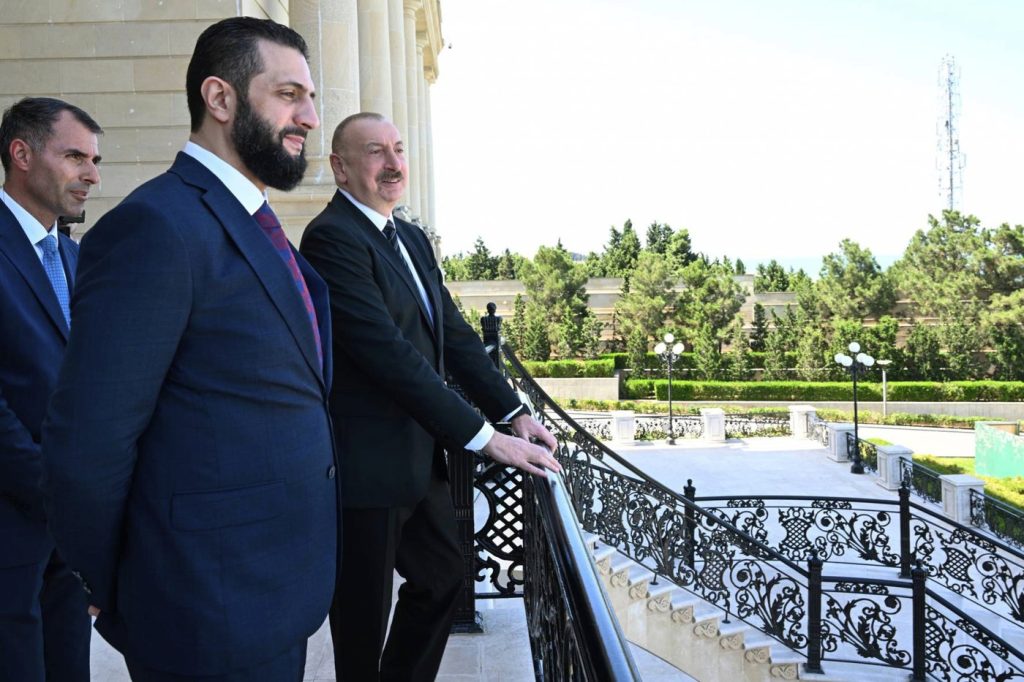The leaders of Azerbaijan and Syria have expressed their intention to strengthen cooperation, particularly in the energy sector, during a meeting held on Saturday, July 12, 2025. This initiative is aimed at revitalizing the ties that had been strained under the regime of former Syrian President Bashar Assad.
Azerbaijani President Ilham Aliyev indicated that he hopes the recent visit to Baku by Ahmad Al-Sharaa, the interim president of Syria whose rebel forces ousted Assad in December, would “significantly contribute to the development of bilateral relations.” Al-Sharaa acknowledged Aliyev’s “brotherly support to Syria,” emphasizing that the prior Assad government had adversely impacted Syria's relations with multiple nations, including Azerbaijan.
During their discussions, the two leaders notably focused on plans to facilitate the export of Azerbaijani gas to Syria through Turkey. They also addressed Azerbaijan’s potential role in the reconstruction of Syria's energy infrastructure. This cooperation aligns with the strong relationship that the new authorities in Damascus have established with Turkey, which is a close ally of Azerbaijan. Additionally, Baku has cultivated relations with Israel and has acted as a mediator to ease rising tensions between Turkey and Israel concerning issues related to Syria.
In a notable development back in April, Turkey and Israel engaged in “technical talks” on Azerbaijani soil aimed at establishing a mechanism for de-escalation that would prevent undesirable incidents in Syria.
This burgeoning relationship highlights a significant shift in Syrian foreign relations following the ousting of Bashar Assad. The commitment to increased collaboration in the energy sector is of particular interest, as it holds the promise of enhancing regional energy stability and integration. The involvement of Turkey further complicates the dynamics, given its importance as a transit hub for energy supplies and its existing ties to both Azerbaijan and the new Syrian administration.
The implications of this cooperation may extend beyond mere energy initiatives, potentially fostering a new geopolitical landscape in the region. Azerbaijan's role as an intermediary between Turkey and Israel could prove essential in mitigating conflicts and establishing a more stable regional order, particularly in the context of ongoing challenges in Syria.











